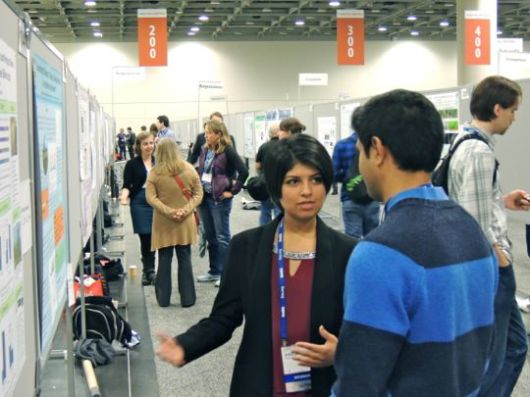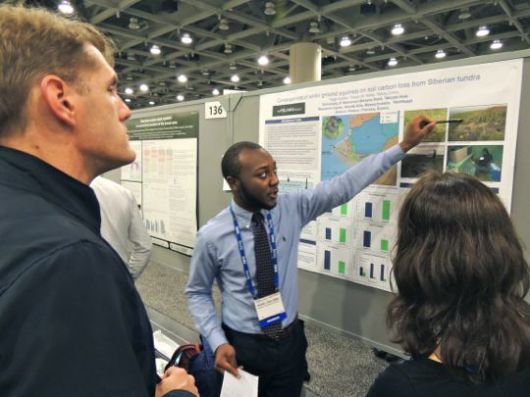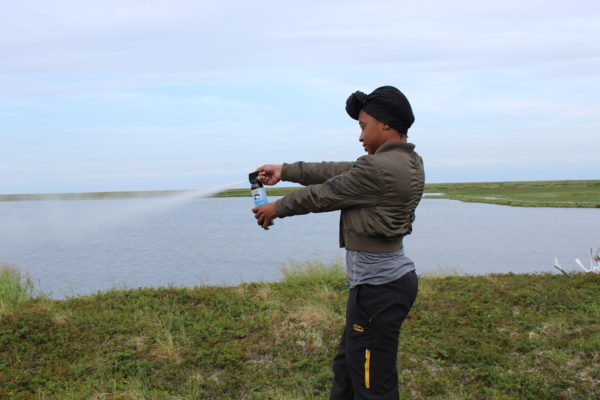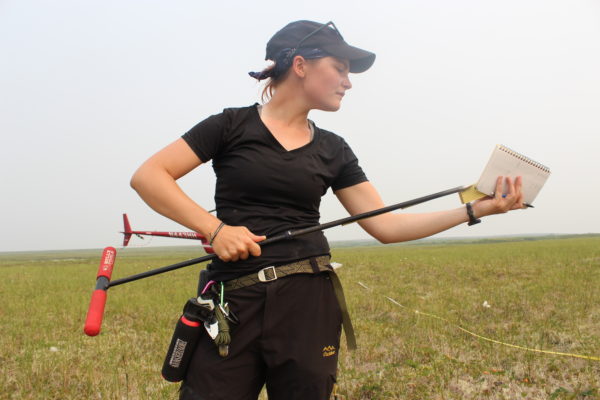The 2014 American Geophysical Union(AGU) Conference in San Francisco was a wonderful experience for the Polaris Project as well as for outreach to educators. The week began on Sunday at the public gathering known as the Exploration Station where dozens of interested attendees stopped by the Polar booths to learn about ongoing research and the opportunities for classroom students to get involved. Many of the students attending this year were from local Boy and Girl Scout troops looking to earn badges for science-related lessons. I handed out more than 50 Decomposition Bags and protocols to the students as a way for them to collect local data on soil decomposition rates as part of the Global Decomposition Project, begun by Polaris faculty member Dr. Susan Natali.

Erika Ramos presents her research at AGU 2014. Photo by John Wood.
The Polaris Project participants were involved with oral and poster presentations throughout the week. On Monday, in an education session, three of the Polaris students—Nigel Golden, Erika Ramos, and Megan Behnke— joined me to talk about their experiences with the Polaris Project and their time in Siberia. All of the students really touched on their personal growth and life-changing insights into their research goals and future careers. We also presented the awesome interactive map journal created by Greg Fiske. It was an inspiring presentation and one that the audience responded to very positively.

Nigel Golden presents his research on arctic ground squirrels. Photo by John Wood.
On Wednesday, the core students presented their research posters and had some very in-depth conversations with scientists and fellow students. The Polaris students really shined when it came to sharing their research and data from the field. The session was well attended, and the students were pretty busy for most of the four hours.
There were many Polaris presentations from 2014 participants and also from Polaris alumni from previous years. It was so nice to meet past students and leaders at our Polaris gathering on Monday evening, which was attended by more than 30 Polaris participants. After the first seven years, the Polaris Project is going strong and very much an important vehicle for offering students and researchers unique opportunities to study climate change in the Siberian Arctic. Back in November of 2007, Polaris Project founder Dr. Max Holmes wrote in a blog; “We expect that the Polaris Project will be an exceptional learning experience and tremendous adventure for all participants.” The 2014 Polaris Project was everything he was hoping for and I truly believe it was so much more!



